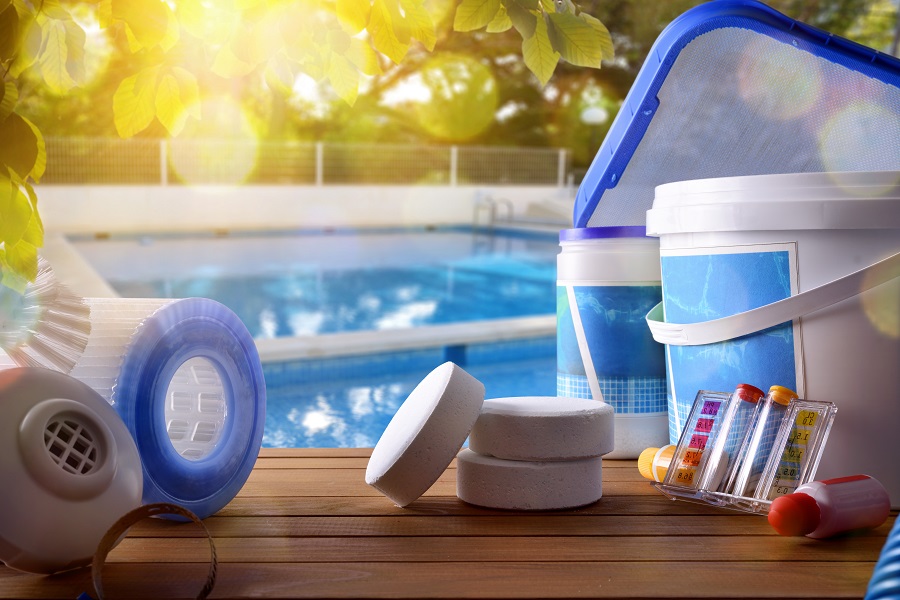An above-ground pool is an excellent addition to any backyard. It can provide a safe place for children and pets to play, and a beautiful focal point for the yard.
However, caring for an above-ground pool requires a little bit of regular maintenance.
Here are some tips to help you maintain your pool and enjoy its benefits.
1. Maintain Proper Water Level
When you first install your pool, you may notice that the water level is higher than usual. This is because the pool has been slightly overfilled after installation.
After the pool is filled with water, the water level should drop until it reaches the proper depth. The pump won’t operate properly if the water level drops too low.
To ensure that the water level stays within acceptable limits, add water to the pool every few weeks or wait until the next rainstorm.
In most temperate climates, adding an inch or two of water per week will keep the water at the desired level.
2. Keep the Filter Clean
A dirty filter will cause algae & other biological to grow in the pool and will clog your filter system. Algae growth causes the water to become cloudy and discolored.
If the water is becoming cloudy, remove the filter and clean it thoroughly. The filter should be cleaned once a month during high season.
3. Use the Right Chemicals
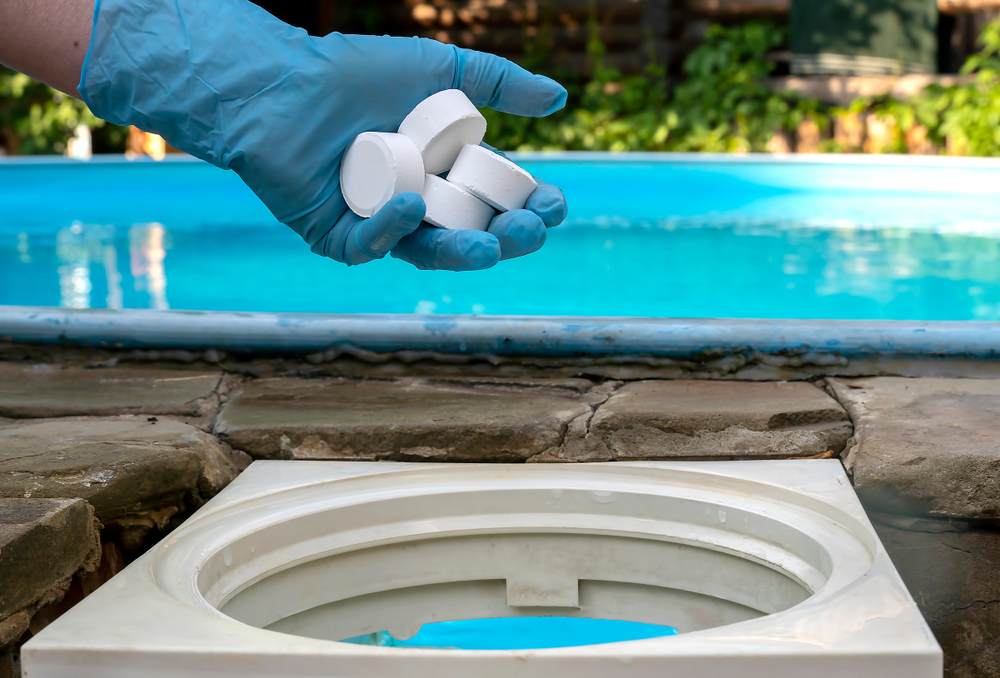
Chemicals such as chlorine and bromine kill bacteria and prevent algae from growing in pools. These chemicals must be maintained at specific levels to ensure that the pool remains clear and free of harmful bacteria.
Chlorine is added to the pool to kill bacteria and other biologicals. It’s essential to use enough chlorine to kill off all bacteria, but not so much that the pool becomes dangerous to swim in.
Chlorine reacts with organic matter in the pool to create hypochlorous acid. Hypochlorous acid kills bacteria, but it can also damage the liner.
Bromine is often added to pool water to prevent algae from forming. Bromine works by combining organic matter in the water to form bromide ions. Bromide ions attach themselves to algae cells and stop them from multiplying.
The right balance between chlorine and bromine is necessary to keep your pool clean. Too much chlorine can damage the pool’s liner, and too much bromine can cause your pool water to become too alkaline.
4. Check Your pH Levels
The pH level of your pool water affects not only the biologicals in your water, but can protect the surface of your pool from premature damage.
Therefore, the pH level of your pool should be checked regularly to ensure that it is within acceptable limits.
The pH level of the pool water can be measured using a test kit. Most pool water test kits come with instructions on how to perform the test.
Make sure to follow these instructions carefully. You do not need to spend a lot on a digital water meter to know where your pH stands.
Simple paper strips work just fine, and they are extremely cheap to buy and easy to find.
If your pool water is too acidic, you can adjust the pH level by adding baking soda. If the pH level is too basic, you can neutralize the water by adding hydrochloric acid.
5. Keep the Pump Running
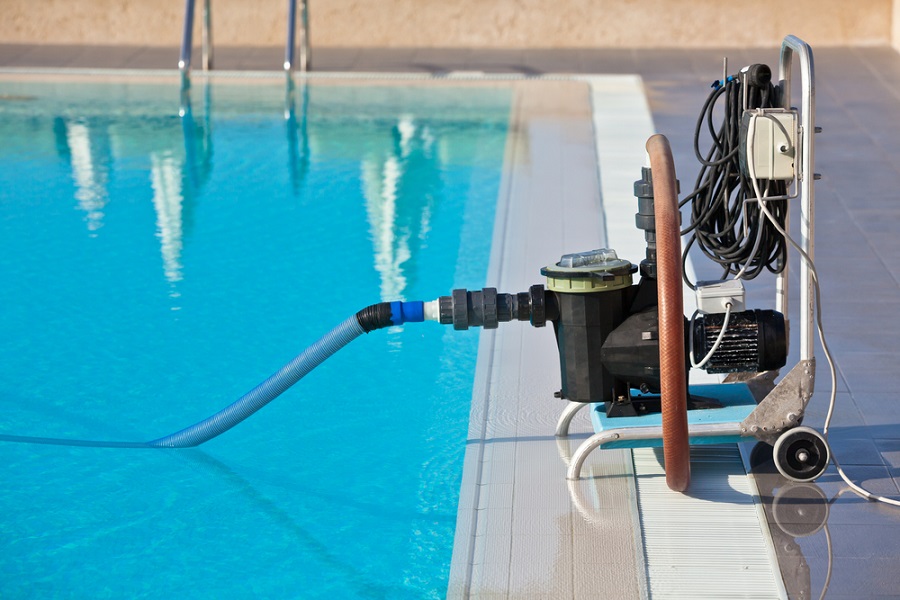
Your pool pump runs continuously to circulate the water around the pool. If the pump stops working, the water will stagnate and eventually turn green.
It’s recommended that you check the condition of your pool pump annually.
Check the manufacturer’s warranty to see what type of warranty & regular maintenance schedule applies to your particular model.
You can also check the condition of your pump by looking at the motor housing. If there are cracks, leaks, or other signs of wear, you may need to replace the entire unit.
6. Clean the Skimmer Every Week
Skimmers are used to skim the debris out of the pool. Over time, debris collects in the skimmer basket and reduces the efficiency of the skimmer. Cleaning the skimmer helps increase its performance.
To clean the skimmer completely, consider running some warm water through it. You can also use a brush to scrub away any debris stuck in the basket.
7. Test the Chlorine Level
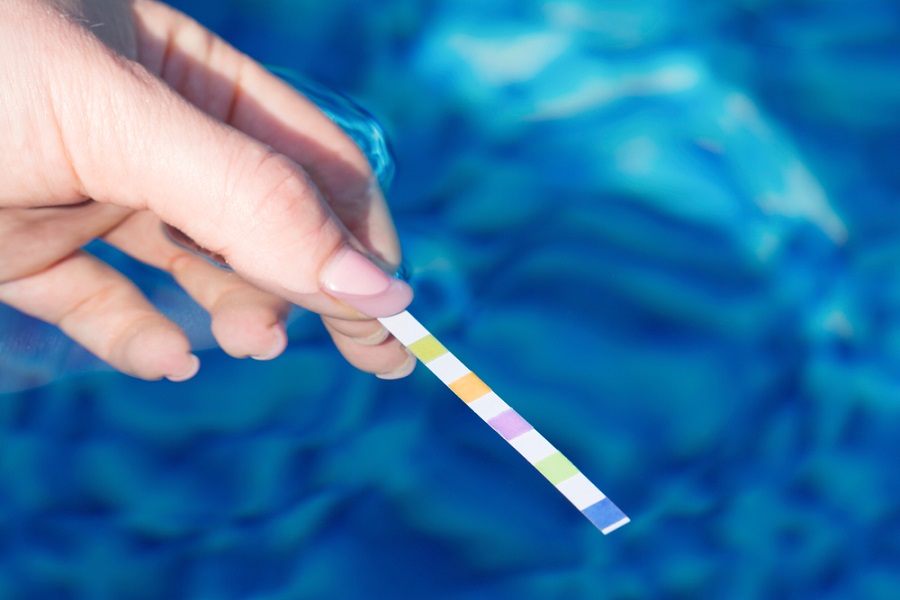
The simplest way to test the chlorine level in your pool is to dip a paper water test strip into the pool. The color coded legend on the test strip bottle will tell you if it’s too high or too low.
If your pool pump system use a saltwater chlorinator, then it will likely come with a digital chlorine or sale ppm indicator.
Make sure salt levels are kept between 2,500 and 3,500 ppm for optimal chlorine production.
Contact a local pool service company if you’re unsure whether your pool has adequate chlorine levels. They’ll know exactly how much chlorine to add to maintain your pool’s ideal PH level.
8. Check and Maintain Your Pool Liner
Pool liners not only contain the water in your pool, they also help protect the walls of your pool against cracking and peeling caused by sunlight exposure. To prevent this, make sure to install the liner properly.
9. Use Algaecides Correctly
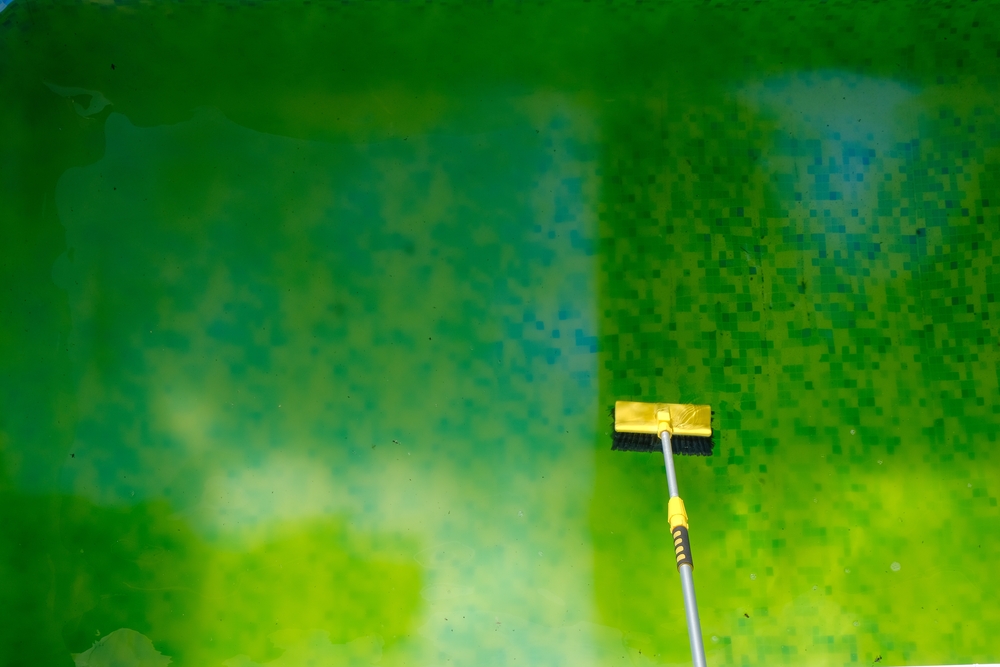
For green algae, you normally just need to use chlorine to kill it.
But black algae is different. An algae brush or scraper will help you properly remove algae from your pool’s surface.
It works by scraping off the hard coating covering black algae to allow chlorine to do its job.
Algae scrapers can be purchased online or at home improvement stores.
10. Use Pool Shock Correctly
Shock treatments involve injecting chemicals, normally chlorine, into the pool water to kill bacteria & algae. In rainy climates you may need to shock your pool weekly. In dry, arid climates perhaps once a month.
The best time to shock treat your pool is during the first few weeks after filling it up. During this period, the temperature of the water remains fairly constant and is not too warm that the chlorine flashes out of the pool too quickly.
The amount of shock treatment required depends on the size of your pool. A typical pool requires about 1 gallon of shock treatment per 10,000 gallons of water.
Mix one-part chlorine bleach (5 percent) and four parts water to perform a shock treatment. Add two cups of this mixture to every 10,000 gallons of pool water.
After mixing the solution, please wait 15 minutes before adding it to your pool. The chlorine will start killing algae within 30 minutes.
11. Keep Your Pool Free Of Leaves And Other Debris
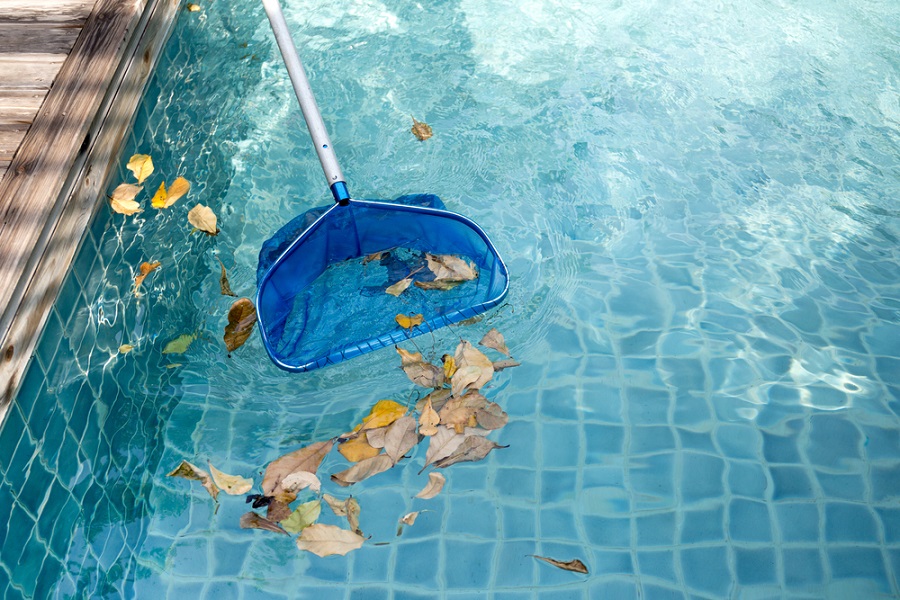
Leaves and other floating objects cause problems for pools. As these items floating around in the water, they collect dirt and bacteria that can harm your pool.
To avoid this problem, regularly remove leaves and other debris from your pool using a pole-mounted net or an automatic pool cleaner with a filter basket or cartridge.
You may need to first brush the surface to loosen debris.
You can also hire a professional pool cleaner to do this work. If you choose to go this route, though, ask questions about their cleaning methods. Some may use harsh chemicals that could damage your pool.
12. Use a Solar Blanket
A solar blanket helps reduce evaporation by keeping heat trapped near the water’s surface. You can purchase a solar blanket from a pool supply store.
Some blankets are designed to fit over the entire pool deck. Make sure to place the blanket over the pool cover to ensure no air escapes through the cracks.
If you have a large pool, consider purchasing a second blanket to cover the side of the pool closest to the house.
13. Check For Leaks
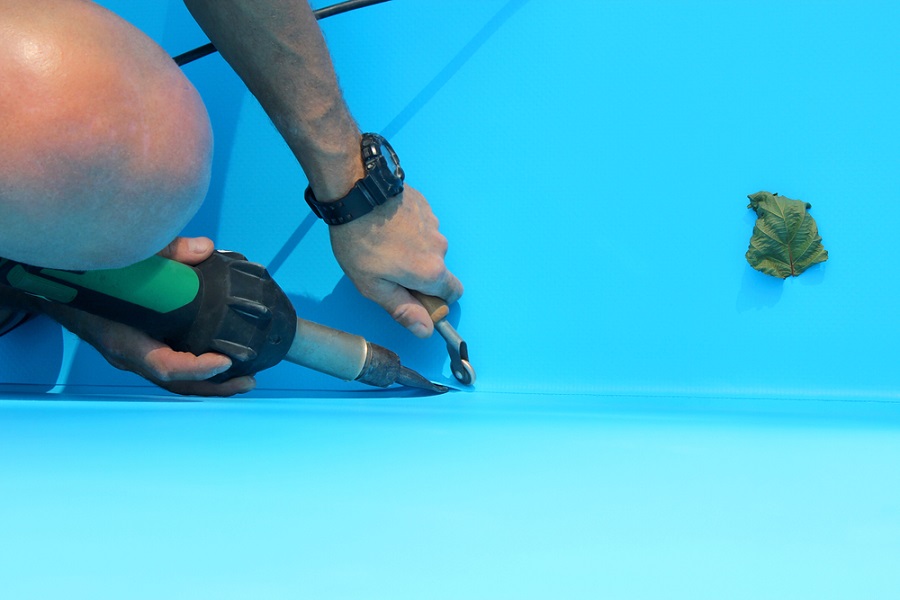
Leaks in your pool can lead to serious health risks. To prevent this problem, check your pool’s plumbing system regularly.
If you notice any leaks, immediately contact a plumber. They’ll be able to fix the problem quickly and safely.
14. Make Sure The Water Level Doesn't Drop Too Low
The water level is essential when caring for your pool. Check the water level often to ensure that it stays at the correct height. This ensures that there’s enough room for swimming and diving.
If you own a saltwater pool and the water level is too high, it can overflow onto into your yard and eventually the salt will damage your lawn and plants.
If your pool level drops too low (below the skimmer pickup level), then your pool water will no longer circulate as designed and will eventually become cloudy.
Also, make sure that the filter isn’t clogged. If the filter is not working correctly, the water level might rise because of the extra water being pumped out.
If you find that your pool has a varying water level, call a pool service company. They can help you adjust the water level to even throughout the pool.
15. Winterize Properly
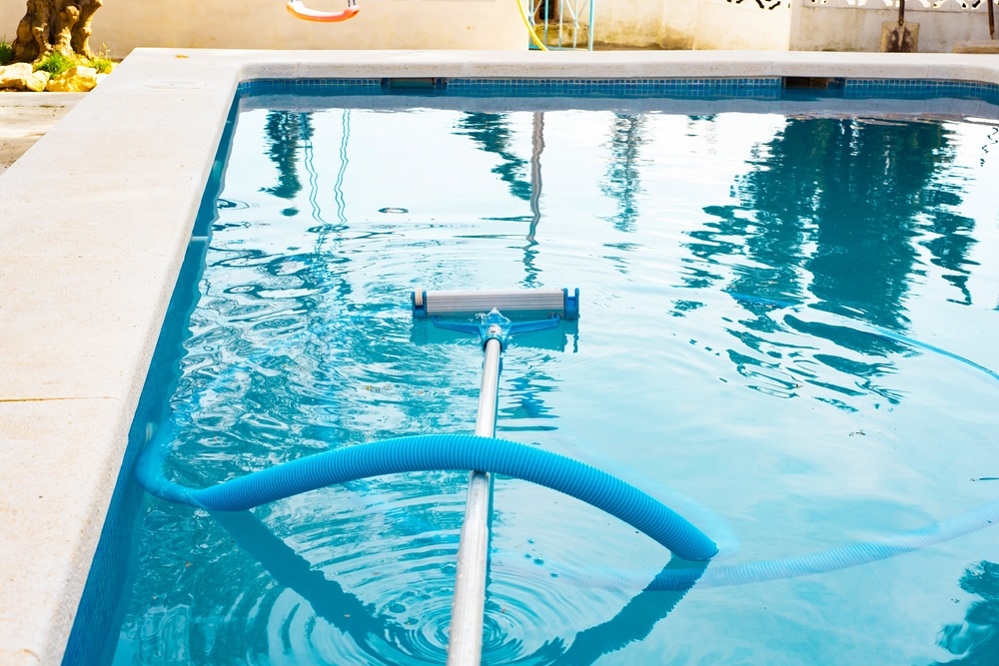
When winter approaches, it’s essential to prepare your pool for the cold weather.
First, drain your pool completely. Then, remove all of the water from the pool. You can store the drained water in a bucket until springtime.
You may want to consider covering or surrounding the bottom of the pool with sand. Make sure to pack the sand tightly around the sides of the pool. This helps insulate the pool from the elements.
Finally, consider covering the entire pool in plastic sheeting. Be sure to leave enough room for air circulation.
FAQs
Q: What Does A Pool Cover Do?
Pool covers protect your pool from sunlight (which can cause chlorine to leach out quickly) and from falling debris.
Some pool covers are designed to prevent people and pets from falling into the water altogether.
Q: How Long Should I Keep My Pool Cleaned Out During The Winter Months?
It’s best to keep your pool clean during the summer months.
Q: Can I Use Salt Instead Of Chemicals To Care For My Pool?
Yes! Using salt instead of chemicals will save money and help you maintain a healthy pool.
A saltwater system is also less harsh on both people and your pool’s surface. However, you must add salt to your system to keep the chlorine at optimal levels.

